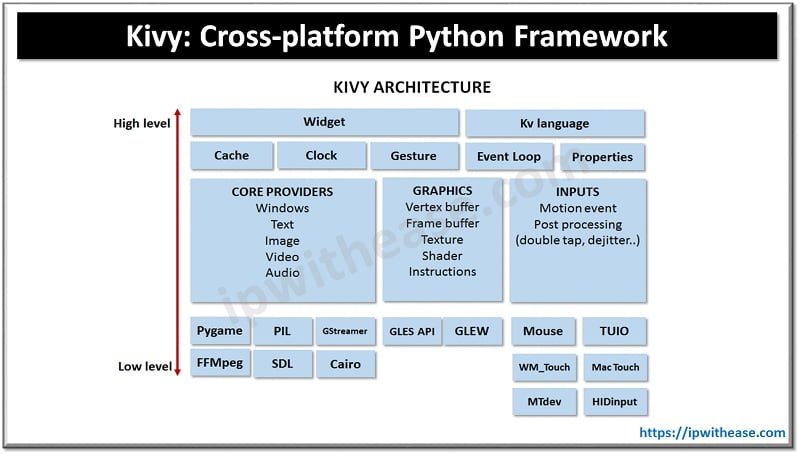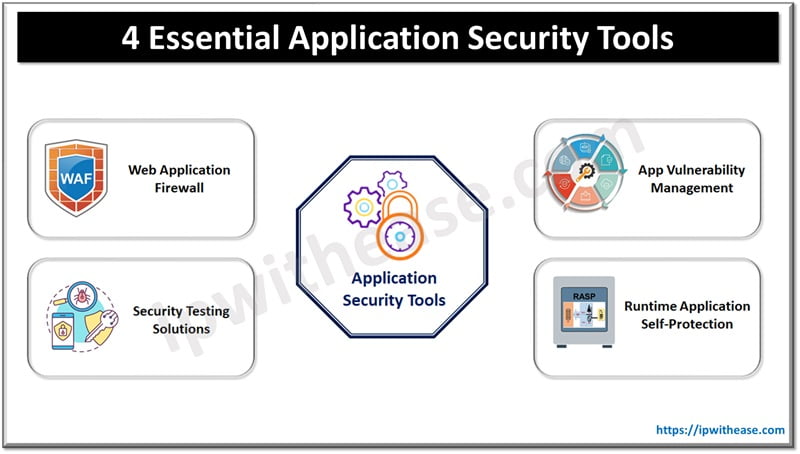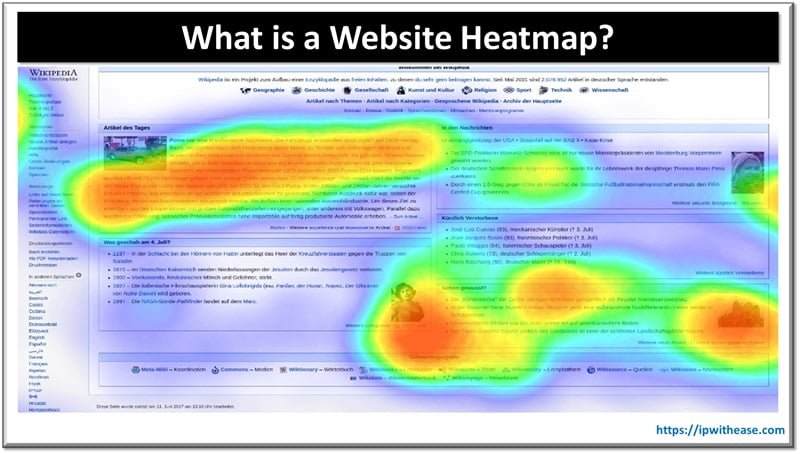Table of Contents
If you are planning to develop Python-based mobile applications, then you must know about the Kivy Software. It is hard to find applications developing software with all the features as in the Kivy.
In this article, various features and uses of Kivy are discussed in detail. What is Kivy? Should I learn or use it? If you are having these questions in your mind, you will get the answers for them at the end of this article.
Okay, without further ado let’s get started with the short introduction on Kivy.

Introduction to Kivy: Python Framework
Kivy is an open-source cross-platform application development framework for python. It uses a Natural User Interface (NUI) to develop mobile applications that can work effectively on various platforms like Android, macOS, iOS, etc…
You can develop an application for a platform, and then using Kivy you can use it across different types of devices. It is mostly used to develop mobile apps and other multi-touch applications. Kivy is the evolution of the PyMT project which is recommended for new projects.
It is distributed under the MIT free license and can be accessed by everyone in the world. The base codes of the Kivy are written by Python and Cython. And it uses a separate language called Kv language to describe the user interface and interactions inside the kivy framework.
Features of Kivy
Kivy has an easy application building framework and includes all the elements such as –
- It has a wide variety of Widgets that support multi-touch applications.
- The intermediate language kv helps you a lot in designing custom widgets and existing ones.
- It has a wide graphic library based on Vertex buffer Object and shaders which uses only OpenGL ES 2.
- It has input support for the mouse, keyboard, TUIO, and other OS-specific multi-touch events and extensions.
Other than above said basic features it has more cool features as below –
1.Video Modules
It has various modules to play the video files and streams. The Kivy video player provides all the basic video support options like play, pause, stop buttons and also the subtitle, display messages, etc…
2.Flexibility
The main pro feature of the Kivy is its flexibility. It can run on a variety of devices including complex ones like Linux, Mobile phones, windows, Raspberry Pi, tablets, and ios. The application built using Kivy can easily adapt to the new technologies.
3.Multi-touch Gestures
As said earlier, Kivy has a wide variety of widgets to support multi-touch application development. The Kivy developers build a gesture library to record the user’s gesture. You can record three types of gestures here they are –
- Left to Right horizontal line
- Right to the left horizontal line
- Bottom to the top vertical line
4.Visuals Effects and OpenGL
When it comes to mobile applications gaming apps cover a large share. Kivy uses a feature known as PyGame for easily creating new games. This comes with different modules for drawing shapes and colors.
5.User Interface
The Graphical User Interface in the Kivy is the best. And it has all the elements to create an application with user-friendliness. It has several widgets and controls to make the applications more interactive and attractive. It comes with one-hand usability; navigate gestures, new animations, dark modes, etc…
6.Free to Use and Low Requirement
Kivy is open-source and completely free to use. And the system requirement for using the Kivy is also very basic – a 32 or 64-bit processor, 1 GB RAM, 128 MB of graphical memory.
So now the question arises, Is Kivy the best choice? Let’s see the advantages and disadvantages to decide it.
Advantages of Kivy
- It performs better than HTML 5 and other tools
- It helps you to run the original code on all the supported platforms
- It helps to develop an innovative user interface with multi-touch functionalities
- It offers better presentation for the program using a large library of widgets and gestures
- It provides well-documented APIs.
Disadvantages of Kivy
- Though the Kv language is easy to use, it is not always suitable to compile our code.
- The size of the installation package is large
- It lacks community support.
Overall it is the best application building framework based on Python. And if you are okay with the above-said demerits then you can go for it.
Continue Reading
What is Pylint? Python Programming Tool
Introduction to Python OS Module
ABOUT THE AUTHOR

You can learn more about her on her linkedin profile – Rashmi Bhardwaj



